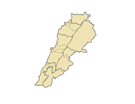While providing services and buying votes is an integral part of the electoral process in Lebanon, political parties have complemented these measures with other tactics which give them an advantage in the final vote count. To understand this process in more detail, LCPS, with the support of the Konrad Adenauer Foundation, interviewed official party representatives who have managed electoral machines, as well as so-called brokers, to better understand how voter persuasion and mobilization is carried out.
Political brokers are crucial elements in any campaign as their job is to identify and monitor voter affiliation, ensure that voters go to the polls, and verify that ballots are cast for a specific political party or leader. However, the profile of political brokers seems to have changed over time. While brokers were traditionally heads of large families, they could now also be party members or supporters with dense social relations. They see themselves as electoral activists rather than brokers, and consider themselves to be opinion leaders with the ability to influence voters’ choices. When asked about the characteristics of a broker, most emphasized that a broker should be able to influence and persuade people, be recognizable publically in their region, be considered credible, and have a base level of popularity. These features seem to validate what is largely already known about brokers. However, the fact that partisan loyalty to a specific candidate or party is not a prerequisite for being a broker sheds light on the fact that brokers are most often middlemen whose work is in reality more of a business transaction— especially in the case of non-affiliated candidates—as opposed to political campaigning, which is more common in well-established parties.
When asked about voters’ political affiliation, brokers have stated clearly that most people openly declare their affiliations, especially in rural areas, and that only a small group hide their preferences. Even in this case, they are able to find out by asking their neighbors and friends. Brokers end up categorizing voters into three groups: Loyalists, opponents, and those who are undecided. While they consider opponents to be a lost cause, brokers need to make sure that loyalists remain so and will be mobilized on election day. This may not materialize in the event a supporter expresses dissatisfaction with a party or zaim for failing to deliver services previously or for having failed to perform social obligations like paying condolences when a loved one passes away. This shows that voters are actually aware of their ability to hold their representatives accountable, but often for the wrong reasons.
This shows that voters are actually aware of their ability to hold their representatives accountable, but often for the wrong reasons.
As for the undecided, there are those who do not want to reveal their preferences and the extent to which they will be swayed with services or money to vote for a specific party or candidate. Depending on the number of votes that can be obtained, brokers tend to schedule a personal visit to convince a family to promise its votes. The person who pays the visit is also key. Depending on the leverage of voters, the visitor is chosen from the hierarchical network surrounding the candidate, with the top being the candidate or sometimes a party leader. Brokers adopt a one-on-one approach, through home visits and service delivery, essentially based on demand rather than supply. This makes it harder to detect, because explicitly asking for a service becomes a voluntary act of ‘subscription’ rather than passive co-optation. Brokers further tighten their grip by developing personal connections with voters, to make them feel as if that connection extends into a personal relationship with the candidates or leaders themselves. Hence, voting becomes a matter of a social obligation rather than a public duty. These ‘personal’ relations are often transferred and exploited in individual and family networks, which are key to ensuring access to high-value goods and services, as previously explained.
As for buying votes, when parties resist doing so, their decision is likely not for ethical reasons but to reduce costs. The need to buy votes is often determined on the weekend of the election by assessing the seriousness of the opponent and the electoral district’s level of competitiveness. If the district is competitive, parties and candidates will end up doling out money to swing voters to get their backing. As one might expect, some heads of families who are bargaining for the best price for their votes may also choose to wait until the last minute to maximize their take. In doing so, these families also run the risk of receiving nothing if the election outcome seems to have favored one candidate over another early on during election day.
Another method by which parties are able to ensure they receive votes is by mobilizing enough mandoubin or assigned polling delegates. This method ensures that the process of mobilizing a base number of voters is relatively easy and streamlined. A mandoub is a paid representative of a political party or candidate who observes the election process at a polling station, ostensibly for the purpose of ensuring the transparency of the election. In reality, they are paid to both cast votes in favor of the party they follow (as mandoubin are themselves registered voters in their districts) and ensure that voters cast their ballots for the candidates whom they unofficially committed to before election day.
Brokers are then able to ensure that voters follow through on their unofficial commitment by virtue of the fact that voting cards are, in many instances, marked. A mandoub or other figure who may gain access to ballot boxes, or is present to see the voting card deposited in a voting box, will then know whether a voter who pledged their vote for a candidate followed through on their commitment. In some instances, direct payments for votes are given in two allotments, the first coming before Election Day, and the second after—assuming that the mandoub or broker is satisfied that the voter in question cast their ballot for the desired candidate. Defect voters—easily tracked in the absence of unified pre-printed ballots—are often punished, through the denial of access to services. Reprisals can be harsher, sometimes taking the form of an active financial boycott.
Political brokers have also assisted in orchestrating campaign events. In some cases, they even pay people to hold banners in support of a political leader. These same people might be hired the very next day to carry banners in support of their opponents. In one instance, we were told that TV cameramen were paid to make the faces of ‘supporters’ unclear by zooming out so those same people could be paid to 'support' campaigns sponsored by other candidates.
Even the media is not spared. Another method used by political parties to influence public opinion during election season entails pressuring or paying journalists to write positive columns about them and their political positions. Some candidates have gone as far as paying experts to spin a positive take on their economic programs. Security and administration officials are also offered valuable ‘gifts’ to overlook certain unlawful practices or grant a higher number of mandoubin permits. Law 25/2008 introduced the notion of electoral funding and spending, which requires that all electoral contributions and expenses be exclusively made through a special account that each candidate specifically opens for his or her electoral campaign. Under the law, such an account should be monitored by The Supervisory Commission on Electoral Campaigns. However, the law does not touch upon other accounts that candidates or their family members could use for illegal electoral activities or for exceeding their expenditure ceiling.
Reconsidering the electoral system is key to reforming and preventing such practices from undermining Lebanon's fragile democracy. Nonetheless, reinforcing accountability mechanisms and oversight institutions is equally important. Until we reach that stage, lucidity is the best form of contestation against the status quo.
[This article was originally published on lcps-lebanon.org.]
















